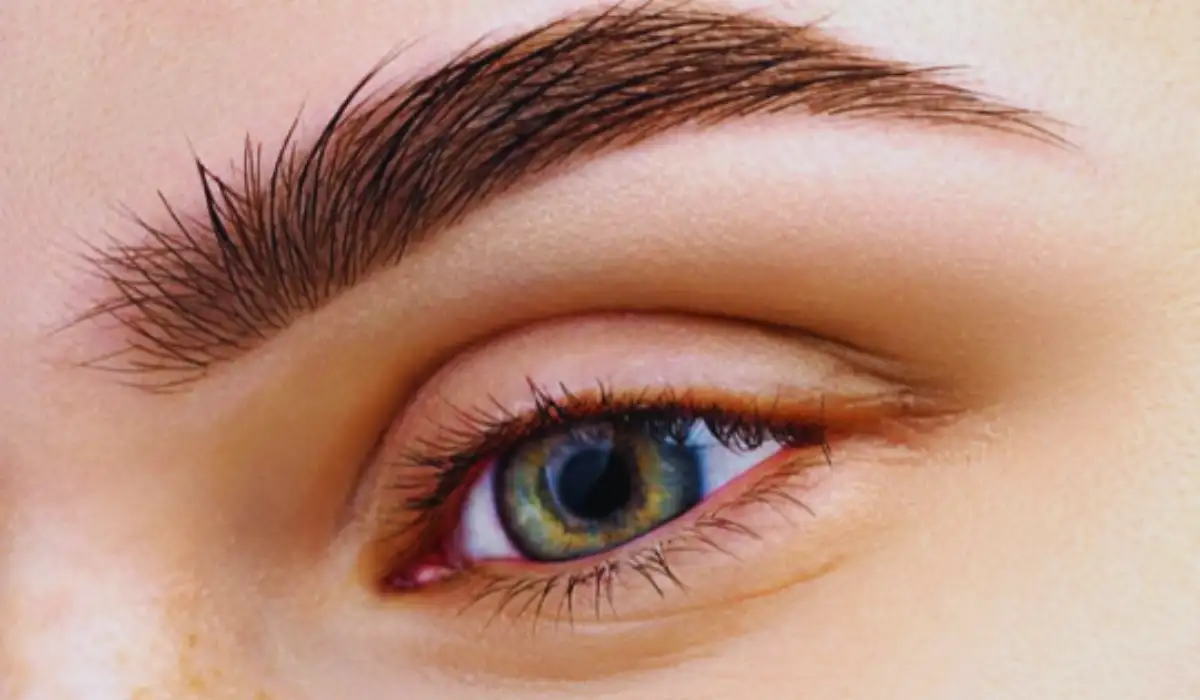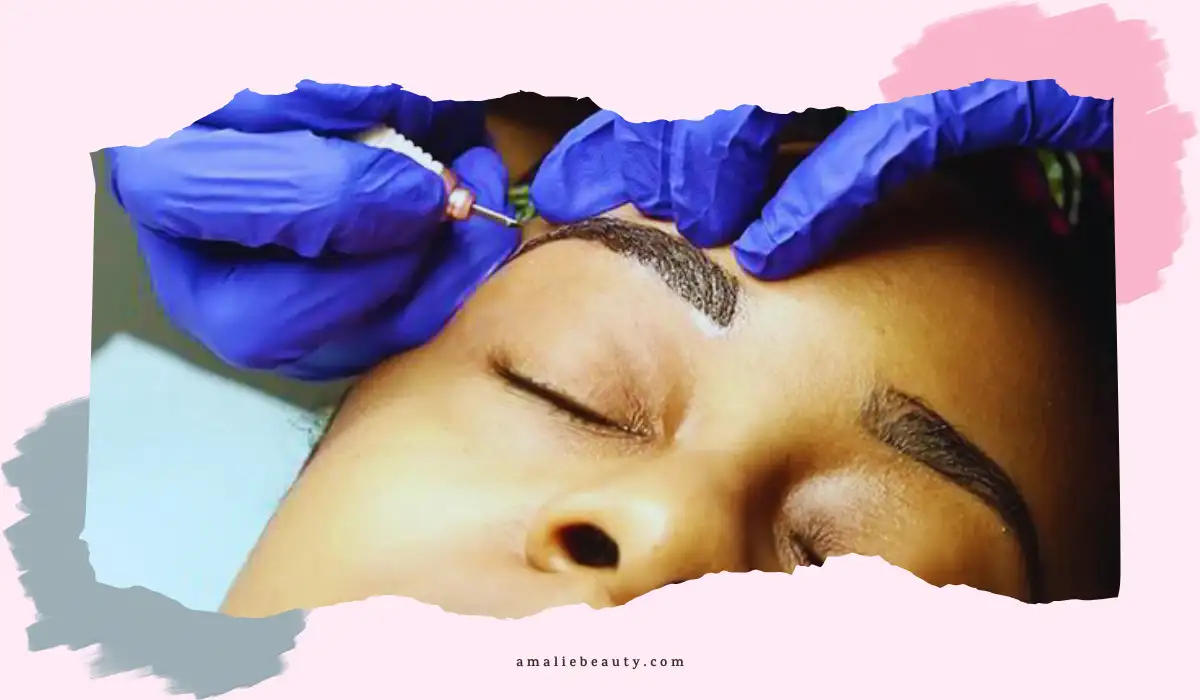Does microblading hold the answer to perfect eyebrows? Consider emerging each morning with perfect, natural-looking brows without even attempting to do so.
That is the trick of microblading, injecting semi-long-lasting pigment into the skin to imitate real eyebrow hair. The game changer for the ones with thin or undefined brows, this process lasts 1-2 years.
However, remember that it is not only about the process; skin type and daily practices, such as staying away from sunlight, influence how perfect your appearance will remain for long.
What is Microblading?

Microblading is a process that involves the injection of semi-permanent pigments into the skin using a small tool with fine needles. It forms stroke-like hair on the eyebrows, appearing thicker and more defined.
The outcomes are usually effective for about 1-2 years. This application method is often recommended for thickening thin or poorly defined eyebrows.
The microblading tool is quite precise. It’s like a pen with a slanted blade tip with 10-12 small needles. These needles don’t go deep into the skin.
They just gently scratch the surface, similar to a paper cut. The needle carefully places light, feather-like strokes with medical-grade pigment on the top layer of the skin. This creates fine, realistic, and natural-looking hair strokes.
Who Can Get Microblading?
The suitability for microblading mainly depends on your skin type. It is not just about how much brow hair you have. It is ideal for those with very sensitive skin, frequent breakouts, or cystic acne around the brows.
The procedure can cause inflammation and impact healing. Oily skin can also lead to faster fading of the results.
Pregnant or breastfeeding individuals and those on accutane should avoid microblading. These groups have a higher risk of sensitivity and infection.
Getting Ready for Microblading: What to Know
Microblading starts with detailed planning. Your technician measures your brows and decides your face’s best shape and size.
It’s crucial to choose a skilled technician. They can measure accurately without just relying on stencils. This step is vital and often takes more time than the microblading itself.
Before the procedure, avoid blood thinners like fish oil supplements, vitamin E, ibuprofen, and Advil. These can increase bleeding and the risk of bruising or scarring. Also, steer clear of alcohol, caffeine, Botox, tanning, waxing, and tweezing.
A key point to remember is that your skin type matters. Dry skin holds onto the pigment better. If your skin is oily, you might need extra sessions, as oil can cause the pigment to fade quicker.
Does Microblading Hurt: What to Expect?
Microblading usually doesn‘t hurt much. Most people only feel a bit uncomfortable. The technician applies numbing cream before starting, which helps reduce any pain.
This cream stays on for about 30 minutes, as the whole session can last up to three hours. A longer session might mean the technician is less experienced.
With the numbing cream, you will probably just feel some pressure or a scratching sensation from the tool. As the session progresses, your skin might start to feel a bit irritated, like a mild sunburn.
How Much Does Microblading Cost?
The cost of microblading varies. It depends on the location and the technician’s expertise. On average, it can cost from $250 to $1000.
Sometimes, touch-up sessions are included in the price. Remember, the skill of the technician is important for the best results. So, it is essential to invest in a qualified professional.
Benefits of Microblading
Microblading offers a range of benefits, making it a popular choice for enhancing eyebrow appearance:
➡️ Time-saving
Time-saving is among the biggest benefits. With microblading, you won’t have to invest time filling in the eyebrows using pencils or powders every morning.
➡️ Natural-Looking Results
Microblading gives a natural touch-up. The fine lines created by the microblading apparatus resemble hair follicles and provide a more natural appearance that is thicker than makeup.
➡️ Long-lasting
In contrast to makeup, the lifespan of microblading ranges from 1 to 2 years based on a person’s skin type and activity level. This longevity implies that you do not have to treat your eyebrows daily.
➡️ Smudge-Proof
Microblading is unaffected by sweat, swimming, or rain. This is perfect for people who live an active lifestyle or have oily skin makeup that might last only a short time.
➡️ Customization
Microblading is highly customizable. You can select your brows’ shape, thickness, and color with your technician. This ensures that your brows are tuned to suit your facial structure and skin complexion.
➡️ Low Maintenance
Only post-healing, microbladed eyebrows require minimal maintenance. This is an important advantage compared to the daily application of makeup on the eyebrows, which takes time and requires a lot of accuracy each time it is done.
➡️ Confidence Boost
Elongated shaped and full brows only add to the beauty of facial features, giving a person more confidence. Microblading allows people a more complete and well-put-together look without having to do too much with makeup for thin, sparse, or over-plucked eyebrows.
Microblading Healing and Aftercare Tips
The healing process for microblading takes about 10-14 days. During this time, your brows will gradually lighten over six weeks as your skin naturally exfoliates and regenerates.
However, the healing doesn’t stop there. Factors like sun exposure can fade the brows faster than expected. This is because your face is often exposed to the sun, even in winter or colder climates, which can affect the ink. The sun can change the ink color, making it look orange, blue, or pink.
Therefore, even after your brows have healed, wearing large sunglasses and a large hat for added protection against the sun is a good idea.
Conclusion
In summary, microblading offers an evolutionary alternative to perfect eyebrows. This approach saves time and provides a natural, life-long solution to those with thin or poor eyebrows.
Even though the method is not complicated, other factors like skin type and ultraviolet ray level are crucial in evaluating how long your brows will remain shaven.
Mind that it all depends on your technician’s skill and Aftercare to keep those perfectly microbladed brows always looking great.

